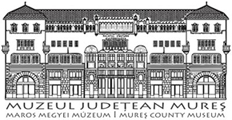Marisia - Maros Megyei Múzeum Évkönyve 37. (2017)
Mădălina Elisabeta Constantin: Identitate romănească şi europeană în contextul Cruciadelor vechi şi noi
Marisia XXXVII Identitate romäneascä §i europeanä ín contextui Cruciadelor vechi §i noi Mädälina Elisabeta CONSTANTIN* Romanian and European identity in the context of the old and new crusades Abstract The crusades were a complex phenomenon of the Medieval times, producing consequences of extreme importance, not only in what the political and economical effects are concerned, but also important religious outcome. The solution is even more ardent if we consider the fact that present realities place us in front of a very similar situation: the rising expansion of Islam, the extremist peril, as well as the increase in the fight against terrorism. Islamism managed to connect different peoples, cultures and traditions, drawing a unitary line for all of them, and, which is more, offering them the consciousness of the Muslim identity, quite the opposite from what Europe does when trying to silence the many national-religious identities. Europe lives in a state of “political correctness” which accepts as possible to happen but the facts that agree to its self-created artificial and utopian philosophy (beautiful as it may be in theory). The Romanian identity is a unique one, both national and European, profoundly Christian. The correct understanding of the (bloody) interaction between religions, which has put its mark on mankind for more than one millennium and a half, can’t be done unilaterally. It relies on our placing face to face the different perspectives involved, especially because the Islamic extremists today mirror many of the views of Medieval crusade fighters. All of them thought their mission to be “holy”, their sacrifice (both physical and financial) to lead to absolution from sins and even to complete forgiveness in case of supreme sacrifice (irrespective of how heavens was perceived by any of the sides), extreme violence, the wish to convert the others by using the sword, forgetting the initial purpose etc. We believe that an efficient approach should consider not only the logical, psychological, tactical analysis of the historical data (much of which subjective, according to the ones paying for the record), but also the larger, longer stride of history, as Braudel called it (a macro-historical approach). Key-words: crusade, Muslim expansion, identity, macro-history Motto “N-auzim noaptea armonia din pleiade?/ §tim de пи träim pe-o lume, ce pe nesimtite cade?" (Mihai Eminescu, Memento mori) Cruciadele au fost un fenomen complex al epocii medievale, avänd consecinte de о Tnsemnätate uria§ä, atät ín ceea ce prive§te efectele politico-economice, cát §i ín ceea ce prive§te consecintele in plan religiös. Problema este cu atät mai stringentä cu cat prezentul ne puné in fata unor conjuncturi in multe aspecte similare, privitor Ia expansiunea galopantá a islamismului, acutizarea pericolului extremist, concomitent cu intensificarea luptei impotriva terorismului. ín cazul cruciadelor medievale, scopul public a fost unul foarte atent ales. Imaginea lerusalimului era, incá din vechime, una deosebit de sensibilá mai cu seamä * Profesor, Colegiul Tehnic Tärnäveni; e-mail: m_constantin79@yahoo.com 9
